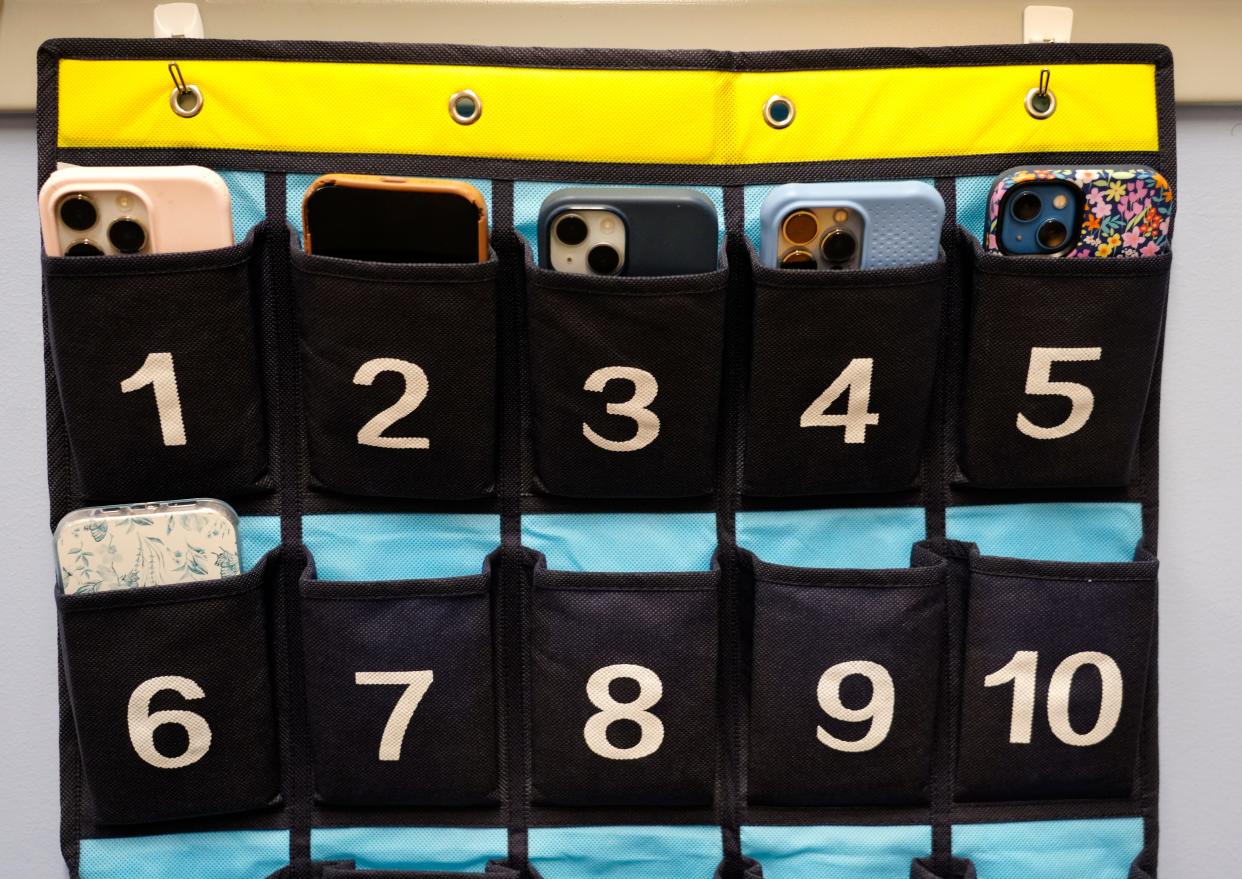How much screen time is too much? Tips for parents to build healthy tech habits | Opinion

After four days backpacking and camping deep in the Great Smokey Mountains earlier this month, I’ve returned inspired, rejuvenated, exhausted – and reminded that I need to reexamine my relationship with my phone. Buried deep in my pack and turned off for four days, my cell phone was not on my mind. I was focused on the trail, the grandeur of nature, the conversation with my fellow hikers – but not on the ceaseless notifications and pings that surely would have been lighting up my phone had it been turned on. I felt a sense of lightness – and it was freeing.
May is National Mental Health Awareness Month, a reminder to us all that good mental health is a platform for a full, healthy, and productive life, and how our relationship with technology influences this. Studies show less screen time is linked to better sleep and better self-esteem. This month, I’m challenging myself to be more aware of my relationship with my phone, what habits are healthy versus unhealthy, and how I can model good boundaries with my phone for my kids.
As a parent of a nine and eleven-year-old, I’m familiar with the questions parents are wrestling with about phones, the internet, and social media and their impact on our kids’ mental health:
How much screen time is too much?
When is the right time for my child to get a phone? And what kind?
How old is old enough to be on social media?
As a community, we are coming to terms with the rapid uptake of phones and social media among youth – the benefits, the challenges, and how best to respond in real time to tech advancements that often outpace our ability to study them. What we do know is that cell phone usage can be addictive and replaces other healthy behaviors – like getting a good night’s sleep, prioritizing in-person connections, and focusing in the classroom.
While many schools have cell phone usage policies, more are moving towards intentionally creating phone-free environments. Locally, Cincinnati Country Day School began collecting phones at the beginning of the school day – a move that teachers, parents, and students have responded to positively. Just this month, Ohio lawmakers passed a bill to minimize phone usage during school hours.

As I reflect on the questions above, I remind myself that changing our kids’ relationships with screens is possible, and that starts with us as parents.
Here are a few ways both kids and adults can incorporate healthy tech habits at home and at school:
Set clear time boundaries around screen time: No phones at the dinner table, no screen-time immediately before bed.
Commit to a screen-free week as a family.
Align our cultural norms for social media exposure with brain development; access to the internet at age 13 and social media at age 16.
Work with other parents to advocate for a phone-free school or classroom environment.
No matter where you are on the cellphone use spectrum, I hope you will join me in using Mental Health Awareness Month to reflect on your relationship with your phone and how it impacts your – and your family’s – mental health. While I may not get a chance to go backpacking “off the grid” for a while, I look forward to finding other ways to create phone-free moments in my daily life – and I’m especially excited for the joy and connection that comes from those times.
If you or someone you know is struggling with their mental health, you are not alone. Call or text the 988-suicide crisis hotline.
Kate Schroder is president and CEO of Interact for Health.

This article originally appeared on Cincinnati Enquirer: Answering the call: How parents can help build healthy tech habits




